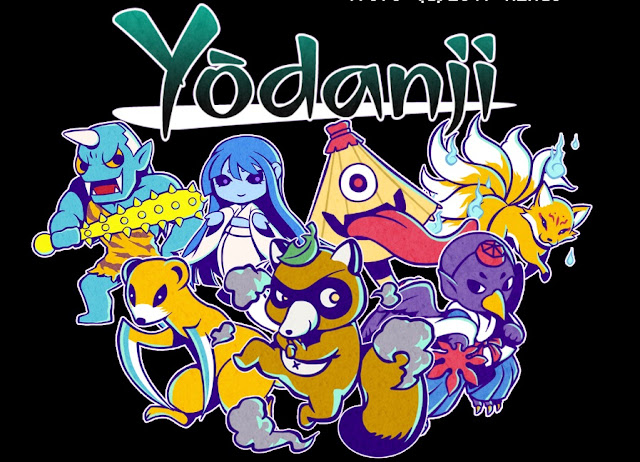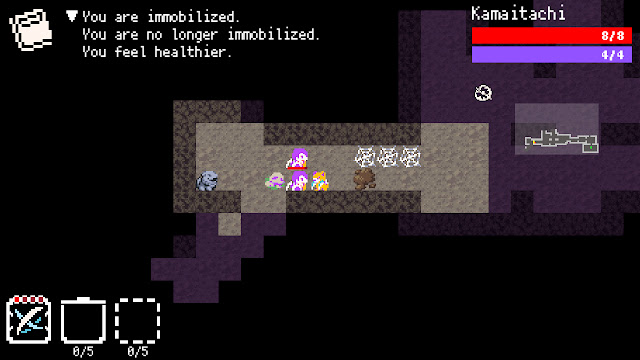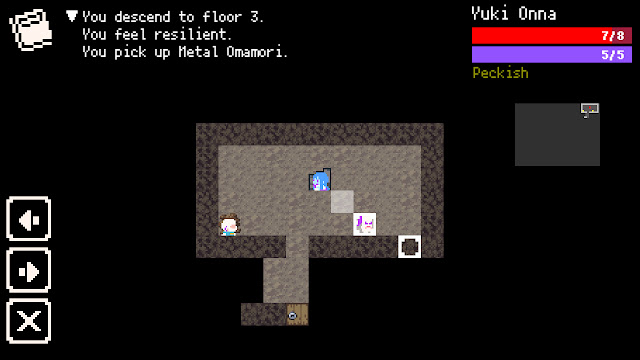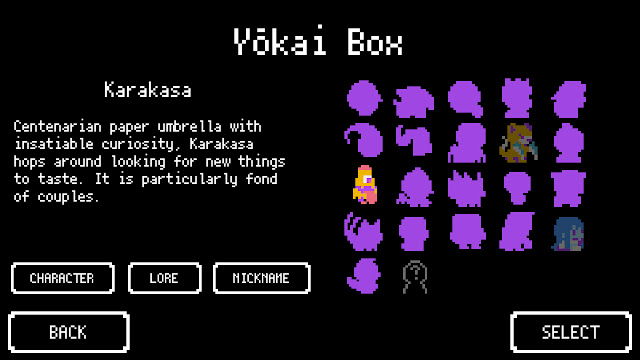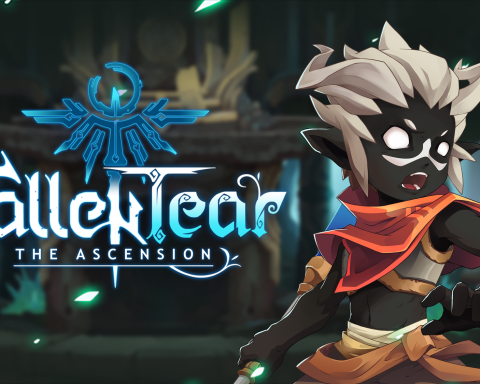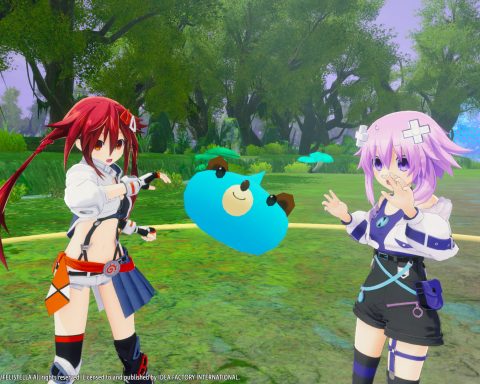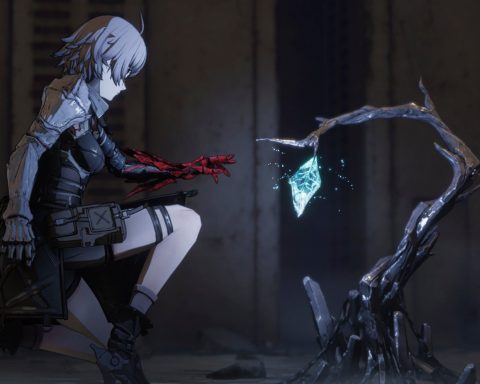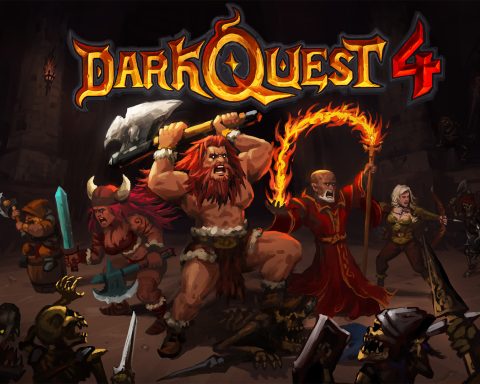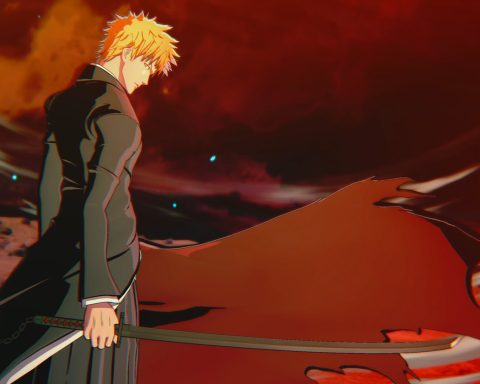Review by Matt S.
I’ve been more than critical of Kemco JRPGs in the past. They’re generally poor efforts, with unbalanced gameplay systems, uninspired level and character design, and ridiculously, laughably derivative narratives. But I’ve said all along that I really love Kemco’s commitment to classic JRPGs, and I’ve just been waiting for the opportunity to praise the company for something. Well, that day is here because Yōdanji is a game worthy of both praise and your time.
Yōdanji can’t be let down by Kemco’s inability to find a good narrative, because it has none. It’s a roguelike that hearkens right back to Rogue itself, and as such it does away entirely with even the idea of a narrative. Instead, what is in the game is simple, streamlined, and minimalist stuff indeed; there’s randomised dungeon layouts, enemies to kill, traps to avoid, and an utterly brutal level of difficulty.
Back as a kid I had a serious addiction to a particular Roguelike called Nethack – a completely free clone of Rogue that even used ASCII characters to represent the hero and the monsters, and as simple as it was I was so addicted to the game for one particular reason; I would go into each game knowing I was almost definitely likely to fail and my character would die, but the game kept track of high scores, and there was a leaderboard that kept track of your successes and failures.
Yōdanji offers exactly that same Sisyphean loop that is simultaneously maddening and yet impossible to actually stop once you get going with it. There’s every chance that something will happen to beat down even experienced players within the first five or six dungeon levels of any given attempt to delve into the game’s dungeons, but each death ranks your hero on a leaderboard, and provides incentive to try again.
Try and try again I would fail at Yōdanji, just to pick myself up and try again. Thanks to a simple, clean interface and combat system, each of my attempts would fly by quickly, giving the game a strong “just one more try” appeal. There’s also a wide range of different characters, each with their own, significantly different, abilities, which adds the kind of variety that a game like this needs to make it really replayable. You’ll start out with access to just the three characters, and you’ll unlock the others as you play along. Each new unlock is an excuse to play the game through a few more times to get a feel for the character and whether you think you’ve got a real chance of going far with this one.
That’s why the random nature of the dungeons is so ideal for this kind of game. Dungeons aren’t much more than corridors and rooms, with a scattering of monsters, traps and treasure, but if the levels were designed, replaying them over and over again would get very tiring. The randomness, even though it doesn’t result in particularly interesting dungeon designs, keeps that sense of anticipation going strong with each and every replay.
Yōdanji’s characters and monsters are all drawn from Japanese yōkai myths, which adds that delightful touch to the aesthetics for those of us who have spent a lot of time reading about the yōkai. They’re familiar enough creatures and shapes to appeal to people who don’t know the stories behind the myths, but even then, as a nice extra touch, the game offers short written histories of each of the characters to give you a crash course in any you might not be familiar with. Then, even if you don’t care to read through those descriptions, the delightful 8-bit designs for the characters makes them appealing simply from a design perspective.
Yōdanji’s not perfect, though. Putting aside that the astronomical difficulty makes it a game that not everyone will enjoy from an outset, the game also suffers from a general lack of variety in monster types. One of the other things I loved about Nethack back in the day was the sense that I would always have some new monsters or loot to look forward to. Yōdanji feels stale by comparison in this regard.
It’s also not deep enough to really hit the highs of the roguelike genre. Because there aren’t as many items, for example, there isn’t the same opportunity to create weird and wonderful solutions to challenges. For example, Nethack would allow you to put on a pair of gloves and wield the corpse of a cockatrice (a monster that has the ability to turn those it touches into stone) as a weapon, and that was a real life-saver when squaring off against monsters that were well beyond your weapon’s ability to fight. Yōdanji doesn’t really allow such creative solutions to problems, and as there is less creativity available to players, difficulty spikes have a greater impact. Indeed, if you don’t have some luck in terms of the random item drops, there’s just no way your power curve is going to remain at parity with the increase in the enemy power.
But again, if you’re dealt a bad hand your character will die, be ranked towards the bottom of the leaderboard, and you’ll just start over, hopefully getting a bit more luck this time around. Yōdanji is eminently playable, and perfect for short bursts in between more meaty games. It’s especially ideal for a mobile device like a Nintendo Switch, for playing while watching TV or on a short bus ride. And it’s the most enjoyable Kemco game I’ve played to date. More of this and fewer generic RPG Maker-like “retro” JRPGs and I will become a real fan for this company.
– Matt S.
Editor-in-Chief
Find me on Twitter: @digitallydownld
 |
| Please Support Me On Patreon!
|

